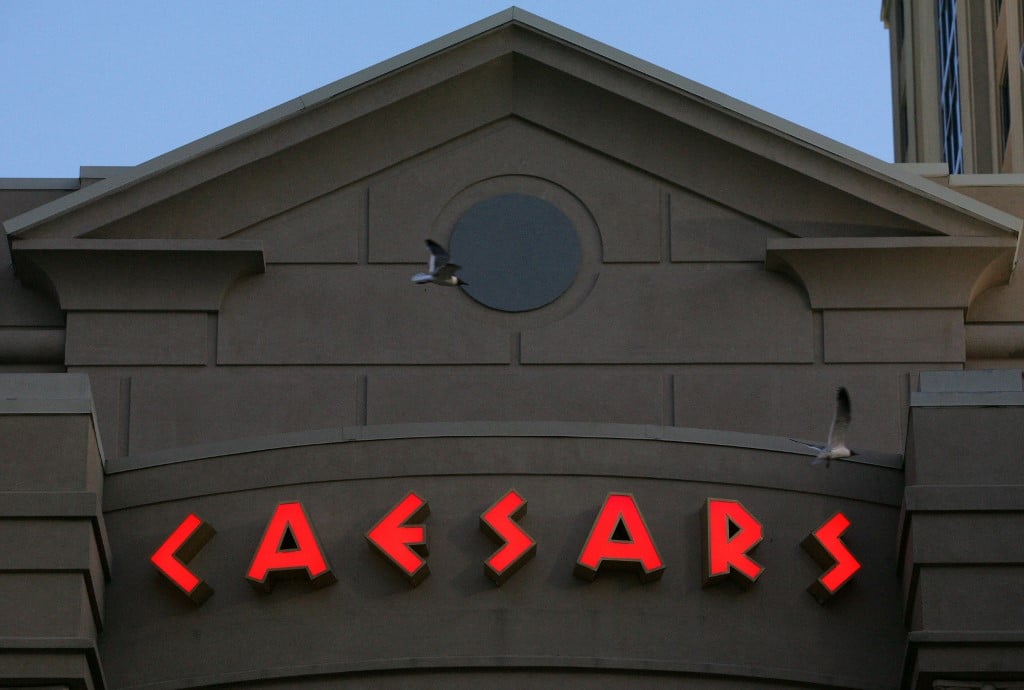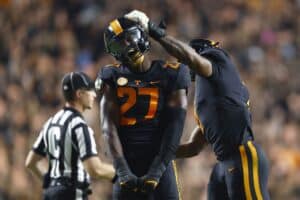
Missourians Against the Deceptive Online Gambling Amendment is the Caesars-backed anti-sports betting campaign in the Show Me State. Records show that the organization has spent $4 million to influence voters to reject the referendum question on November 5th.
Just Say No
It is not often we see a gaming company wage a campaign against expanding gambling in the state in which it operates, but that is precisely what is happening in Missouri. Caesars Entertainment has donated $4 million to the anti-sports betting political action committee, Missourians Against the Deceptive Online Gambling Amendment, and, according to financial records, that money has recently been spent.
The lion’s share of the budget has been disbursed on digital media, to the tune of $1.7 million, which will likely appear on social media and online sites attempting to convince Missourians that sports betting legislation, in its present form, is not a good deal for taxpayers.
Big League Battle
Approximately $1.5 million was spent on media buys, which is likely channeled to TV and radio commercial spots with its anti-sports betting message, while more than $600,000 will fund its direct mail campaign. Polling services received $51,000, and approximately $32,600 went to video production.
This is nearly the entire budget of $4 million Caesars has allocated to fight the opposition, which is the heavily funded Winning for Missouri Education. FanDuel and DraftKings have combined to donate $10 million to the cause of bringing sports betting to Missouri.
The Winning for Missouri Education political action committee was created and supported by the state’s six professional sports franchises, including the St. Louis Cardinals, St. Louis Blues, Kansas City Royals, Kansas City Chiefs, Kansas City Current and St. Louis City FC.
Why Doesn’t Caesars Want Sports Betting?
Las Vegas gaming icon Caesars Entertainment has its tentacles in land-based casinos, retail sportsbooks and yes, mobile sportsbooks. Therefore, it would stand to reason that it would support the birth of a new sports betting market, especially one that boasts nearly 6.2 million residents.
However, it is not that Caesars is opposed to sports betting in Missouri; it is opposed to the particular language in the legislation that will be passed if voters approve. Caesars operates a state-high three land-based casinos in Missouri, including the Tropicana St. Louis, Isle of Capri Boonville Casino and Harrah’s North Kansas City. Under ordinary sports betting legislation, each of its brick-and-mortar casinos would get one mobile sports betting platform, commonly known as a skin, or three in total.
However, in Missouri’s sports betting legislation, each casino operator would get one skin, whether they operate one casino or one hundred in the state. As stated, Caesars would ordinarily get three skins, one for each casino, and use one skin as its own Caesars Sportsbook and then strike a deal with two mobile sports betting competitors that want to gain access to the Missouri market by partnering with its other two casinos.
That’s the first issue. The second issue is that the legislation allows two online sportsbooks to be untethered to either a Missouri casino or a professional sports team. In this case, that would very likely be industry leaders FanDuel and DraftKings, which reveals why the sports betting duopoly dumped $10 million to the cause. The two untethered sportsbooks will not have to share any of their revenues with either a casino or sports franchise in the state, giving them a competitive advantage.
Park University Associate Professor of Political Science Dr. Matt Harris told a local Missouri TV station last week, “I think the reason Caesars is opposing this is because of the limitations on the number of skins, or apps, that can be associated with any one casino company. So, my guess is, Caesars is opposing this, not because they’re opposed to sports betting, but because they think this legislation is too limiting.”







